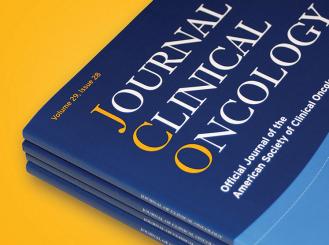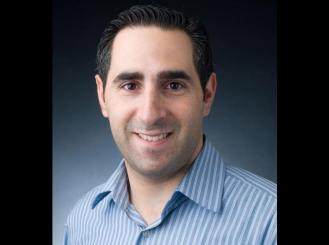Jan 06, 2017
A study of 30,903 men newly-diagnosed with non-metastatic prostate cancer between 1988 and 2015 found that use of androgen deprivation therapy (ADT), which inhibits cancer growth by lowering testosterone, was not associated with an increased risk of dementia. Among the study participants, dementia was observed in 7.4/1000 ADT users and 4.4/1000 non-users, a difference found to be not statistically significant. The study, “Androgen Deprivation Therapy and the Risk of Dementia in Patients With Prostate Cancer,” also found that higher risk of dementia was not associated with longer or shorter use of ADT, or with the type of ADT, for example, GnRH agonists only versus oral antiandrogens only. The study was published in the Journal of Clinical Oncology (JCO) online ahead of print, November 21.
“For patients on ADT treatments wondering if their medication will have cognitive side effects, this study should come as good news,” said the study’s first author, Laurent Azoulay, PhD, an associate professor of epidemiology and oncology at McGill University.
Researchers have been concerned about the association between ADT and increased risk of dementia, including Alzheimer’s Disease, because of the known connection between declines in testosterone and declines in cognitive function as men age. However, three previous, large population-based studies looking at the connection between ADT and increased risk of dementia found mixed results; one study found that ADT use was associated with an increased risk of dementia, whereas two other studies found a non-significant association.
Addressing methodological issues from previous studies
Dr. Azoulay said that the varying findings from previous studies might be the result of methodological issues, such as exposure lag periods and immortal time bias. In the context of studies assessing ADT and risk of dementia, immortal time bias might occur if ADT users are followed from the time of initiation of treatment while non-users are followed from the time of diagnosis. In this scenario, when, and if, ADT non-users become ADT users, the amount of time they spent as non-users is not necessarily taken into account. The possible bias is that the dementia could have already been developing while the patient was in the non-ADT group, but only manifesting after the switch to the ADT group; in this case, it could appear as if dementia is associated with the onset of ADT treatment.
Dr. Azoulay explained that the current study, which used data from the United Kingdom’s Clinical Practice Research Datalink, was designed to address this possible bias.
“We did a number of sophisticated analyses that took into account the fact that dementia and Alzheimer’s Disease are conditions that have an insidious onset, that is, they come on slowly, with symptoms showing only years later. In our study, patients were considered exposed to drug only if they were at least one year on drug. We even did some sensitivity analysis where we varied the time to two years, and here too we found very consistent null results.”
In addition, the study looked at different exposure-time periods to assess whether ADT use was associated with risk of dementia years down the line.
“We asked, how good are these results for events that happen later in follow up, say 15 years down the line?” said Dr. Azoulay. “We carried out one analysis using marginal structural models to address this issue of time-dependency. We saw very consistent results, suggesting that ADT is not associated with an increased risk of dementia or AD.”
Reassurance for patients who receive ADT
Dr. Azoulay said the study might allay anxieties for patients concerned that ADT could increases their risk for dementia.
“While previous studies have shown that ADT can have an impact on some cognitive domains, such as residual motor tasks, we now have a study that shows with a high level of certainty that it is unlikely that ADT increases the risk of dementia and AD. Overall, I think this study provides much-needed reassurance for patients wondering about this risk, especially in light of the conflicting data that’s out there.”
Laurent Azoulay, PhD, is an associate professor of epidemiology and oncology at McGill University and a senior investigator at Lady Davis Institute, the research arm of Montreal's Jewish General Hospital. He has been an ASCO member since spring 2016.
Abstract of the original JCO article.
PDF of the original JCO article.
Khosrow-Khavar F, Rej S, Yin H, et al. Androgen deprivation therapy and the risk of dementia in patients with prostate cancer. J Clin Oncol. Epub Nov 21, 2016.
The Exclusive Coverage series on ASCOconnection.org highlights selected research from JCO, JGO, and JOP, with additional perspective provided by the lead or corresponding author.
@ 2016 American Society of Clinical Oncology


